Farm Boy 牧場の少年 from Final Fantasy VII ファイナルファンタジーVII with sheet music
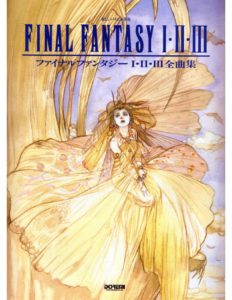
Sheet Music download here.
Music of the Final Fantasy VII series
Final Fantasy VII is a role-playing video game developed by Square (now Square Enix) and published by Sony Computer Entertainment as the seventh installment in the Final Fantasy series. Released in 1997, the game sparked the release of a collection of media centered on the game entitled the Compilation of Final Fantasy VII.
The music of the Final Fantasy VII series includes not only the soundtrack to the original game and its associated albums, but also the soundtracks and music albums released for the other titles in the collection.
The first album produced was Final Fantasy VII Original Soundtrack, a compilation of all the music in the game. It was released as a soundtrack album on four CDs by DigiCube in 1997. A selection of tracks from the album was released in the single-disc Reunion Tracks by DigiCube the same year. Piano Collections Final Fantasy VII, an album featuring piano arrangements of pieces from the soundtrack, was released in 2003 by DigiCube, and Square Enix began reprinting all three albums in 2004. To date, these are the only released albums based on the original game’s soundtrack, and were solely composed by regular series composer Nobuo Uematsu; his role for the majority of subsequent albums has been filled by Masashi Hamauzu and Takeharu Ishimoto.
The Compilation of Final Fantasy VII began eight years after the release of Final Fantasy VII with the release of the animated film sequel Advent Children in 2005. The soundtracks for each of the titles in the collection are included in an album, starting with the album release of the soundtrack to Advent Children that year. The following year, Nippon Crown released a soundtrack album to correspond with the video game Dirge of Cerberus, while Square Enix launched a download-only collection of music from the multiplayer mode of the game, which was only released in Japan. After the launch of the game Crisis Core in 2007, Warner Music Japan produced the title’s soundtrack. The latest album in the collection, Before Crisis: Final Fantasy VII & Last Order: Final Fantasy VII Original Soundtrack, was released by Square Enix the same year as a combined soundtrack album for the game Before Crisis and the animated movie Last Order.
The original music received highly positive reviews from critics, who found many of the tunes to be memorable and noted the emotional intensity of several of the tracks. The reception for the other albums has been mixed, with reactions ranging from enthusiastic praise to disappointment. Several pieces from the soundtrack, particularly “One-Winged Angel” and “Aeris’ Theme”, remain popular and have been performed numerous times in orchestral concert series such as Dear Friends: Music from Final Fantasy and Tour de Japon: Music from Final Fantasy. Music from the Original Soundtrack has been included in arranged albums and compilations by Square as well as outside groups.
Browse in the Library:
| Artist or Composer / Score name | Cover | List of Contents |
|---|---|---|
| The Tom And Jerry Show – Hiromi Uehara (Piano Solo Sheet Music) (Musescore File).mscz | ||
| The Tommy Flanagan Collection |
 |
The Tommy Flanagan Collection |
| The Truman show – Dreaming Of Fiji – Philip Glass |
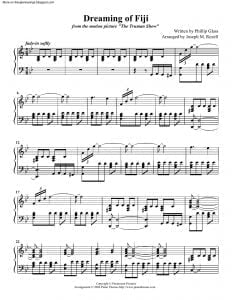 |
|
| The Truman show – Reunion – Philip Glass | ||
| The Truman show – Truman Sleeps – Philip Glass | Truman sleeps | |
| The Trumanshow – Dreaming Of Fiji – Philip Glass | ||
| The Trumanshow – Truman Sleeps – Philip Glass | ||
| The Ultimate Fake Book 2nd Edition for keyboard, vocal, guitar and all C inst. |
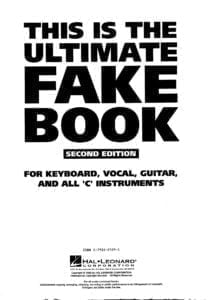 |
The Ultimate Fake Book 2nd Edition for keyboard, vocal, guitar and all C inst |
| The Ultimate Gospel Choir Book Vol4 |
 |
The Ultimate Gospel Choir Book Vol4 |
| The Ultimate Pop Rock Fake Book A-Z (ebook) |
 |
The Ultimate Pop Rock Fake Book A-Z (ebook) |
| The Ultimate Pop Rock Fake Book Joel Withburn |
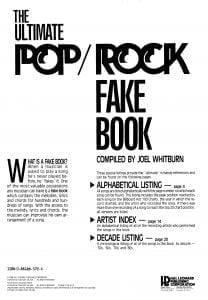 |
The Ultimate Pop Rock Fake Book Joel Withburn |
| The Untouchables – Main Title – Morricone (Musescore File).mscz | ||
| The Used – Smother Me | ||
| The Utimate Broadway Fake Book |
 |
The Utimate Broadway Fake Book – Hal Leonard |
| The Very Best Of John Williams – Dan Coates arr. easy piano |
 |
The Very Best Of John Williams – Dan Coates arr. easy piano |
| The Very Best Pop Songs Of All Time 19 of the best-ever pop songs Piano voica and guitar chords |
 |
The Very Best Pop Songs Of All Time |
| The Village – The Gravel Road – James Newton Howard | ||
| The Visible And Invisible In Pianoforte Technique (By Tobias Matthay) (1947) |
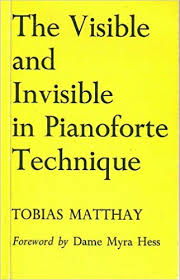 |
|
| The way we were – Barbara Streisand | The way we were – Barbara Streisand | |
| The Way We Were – Piano And Vocal (Musescore File).mscz | ||
| The Way We Were – Piano and vocal Barbra Streisand | The Way We Were – Piano and vocal | |
| The Way We Were (Lead sheet with Guitar chrods and lyrics ) |
 |
|
| The Way We Were (Lead Sheet With Lyrics ) (Musescore File).mscz | ||
| The Way We Were (Musescore File).mscz | ||
| The Wedding Night (Frankenstein OST) Patrick Doyle | ||
| THE WHO – The Who Anthology |
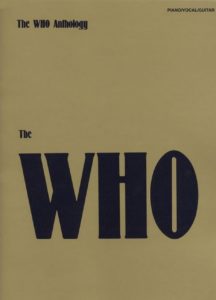 |
The Who Anthology Contents |
| The Who – Guitar Play Along Volume 108 WITH mp3 audio tracks with Tablature |
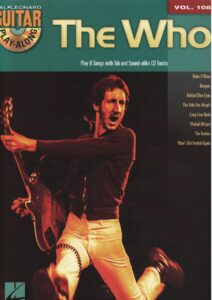 |
Guitar Play-Along Volume 108 – The Who |
| The Who – Tommy (Piano-Vocal-Guitar) |
 |
The Who – Tommy |
| The Who Rockscore |
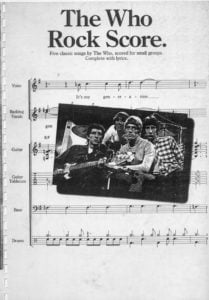 |
|
| The Who The Acoustic Guitar Collection Guitar Songbook TABs |
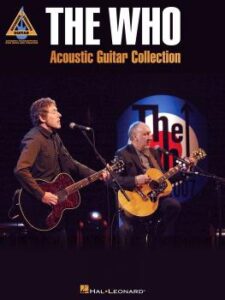 |
The Who The Acoustic Guitar Collection Guitar Songbook TABs contents |
| The Who The Definitive Collection Volume A E Guitar TABs Songbook |
 |
The Who The Definitive Collection Volume A E Guitar TABs Songbook |
| The winner takes it all (Abba) | ||
| The Wizard of Oz – (Harold Arlen) Vocal & piano score |
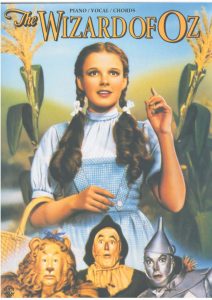 |
The Wizard of Oz – (Harold Arlen) -vocal.piano.score |
| The Wizard Of Oz The Musical by Andrew lloyd Webber |
 |
The Wizard Of Oz Musical Webber |
| The Wonder of Life (Afterwards OST) Alexandre Desplat | ||
| The Wonders – That Thing You Do | ||
| The Words And Music Of Frank Zappa By Kelly Fisher Lowe (Book) |
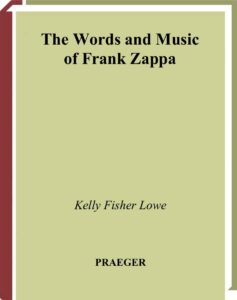 |
|
| The World Hits Of Oldies (Jazz Fake book) |
 |
|
| The World’s best music (Famous Compositions for Piano Vol. 1) 1904 | The world’s best music | |
| The World’s best music V Famous compositions for the piano |
 |
The World’s best music V Famous compositions for the piano |
| The World’s Greatest Fake Book |
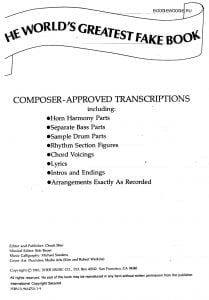 |
Greatest Fake Book |
| The Worlds best music I Famous compositions for the piano |
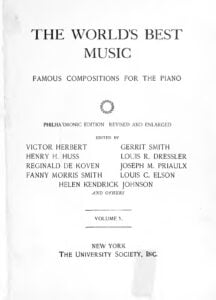 |
The Worlds best music I Famous compositions for the piano |
| The Yellow Rose Of Texas – Traditional (Musescore File).mscz | ||
| The Young Pianist’s Anthology Of Modern Music (1972) |
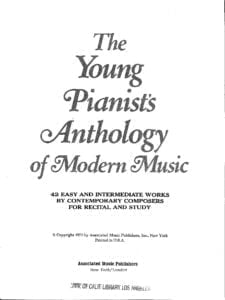 |
The Young Pianist’s Anthology Of Modern Music (1972) |
| The Zombies Songbook |
 |
|
| Thegogos – Head Over Heels | ||
| Thelonious Monk Compositions (as recorded by himself) | Thelonious Monk’s Compositions Fake Book – (Jazz) | |
| Thelonious Monk Blue Sphere |
 |
|
| Thelonious Monk easy piano solos Jazz |
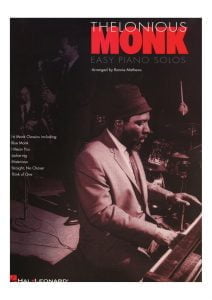 |
Thelonious Monk easy piano |
| Thelonious Monk – Japanese Folk song (Kojo No Tsuki) (sheet music transcription) |
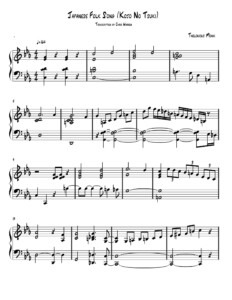 |
|
| Thelonious Monk – Jazz Masters |
 |
Thelonious Monk – Jazz Masters |
| Thelonious Monk – Originals and standards |
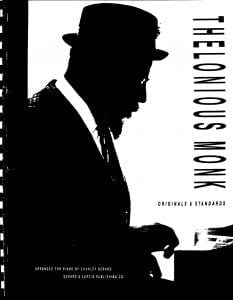 |
Thelonius Monk originals |
| Thelonious Monk – The Man I Love (solo) Gershwin |
 |
|
| Thelonious Monk & Cootie Williams – ‘Round Midnight | Thelonious Monk & Cootie Williams – ’round Midnight | |
| Thelonious Monk Collection | Thelonius Monk Collection | |
| Thelonious Monk Collection 12 Note For Note Solo Piano Transcriptions Artist Piano Transcriptions |
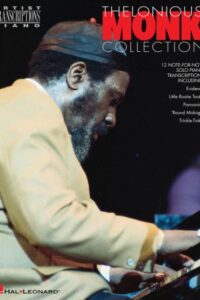 |
Thelonious Monk Collection 12 Note For Note Solo Piano Transcriptions Artist Piano Transcriptions |
| Thelonious Monk Compositions (as recorded by himself) | Thelonious Monk’s Compositions Fake Book – (Jazz) | |
| Thelonious Monk Fake Book | Thelonious Monk Fake Book | |
| Thelonious Monk Fake Book C Edition |
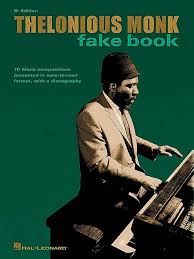 |
Thelonious Monk Fake Book C Edition |
| Thelonious Monk For Guitar with TABs |
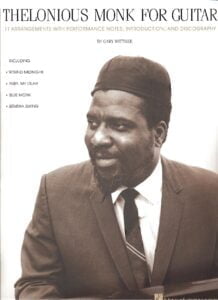 |
Thelonious Monk For Guitar |
| Thelonious Monk Intermediate Piano Solos Arranged By Ronnie Mathews 14 Arrangements |
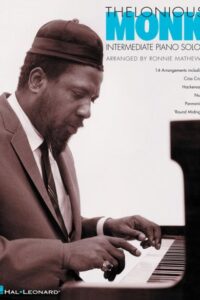 |
Thelonious Monk Intermediate Piano Solos Arranged By Ronnie Mathews 14 Arrangements |
| Thelonious Monk Jazz Piano Collection |
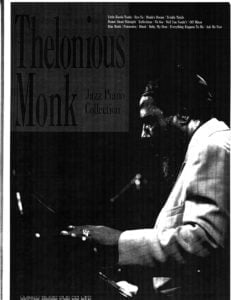 |
Thelonious Monk Jazz Piano Collection |
| Thelonious Monk Jazz Piano Solos Series Volume 49 |
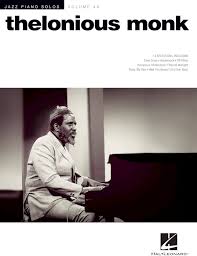 |
Thelonious Monk Jazz Piano Solos Series Volume 49 |
| Thelonious Monk Omnibook for piano Transcribed exactly from his recorded solos |
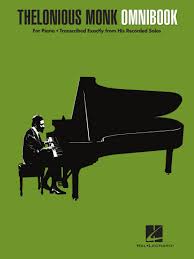 |
Thelonious Monk Omnibook for piano Transcribed exactly from his recorded solos |
| Thelonious Monk Plays Standards – Volume 1 Artist Transcriptions Piano 12 transcriptions |
 |
Thelonious Monk Plays Standards – Volume 1 Artist Transcriptions Piano 12 transcriptions |
| Thelonious Monk Plays Standards – Volume 2 Artist Transcriptions Piano 12 transcriptions |
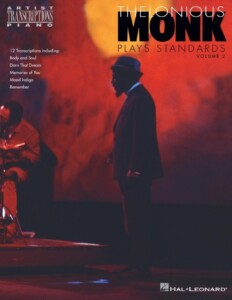 |
Thelonious Monk Plays Standards – Volume 2 Artist Transcriptions Piano 12 transcriptions |
| Thelonious Monk Quartet featuring John Coltrane at Carnegie Hall (Book) |
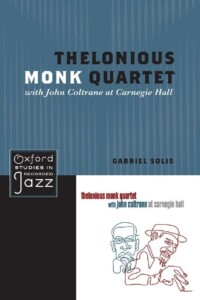 |
|
| Thelonious Monk Revealing Instincts Of The Genius Of Jazz Piano Originals |
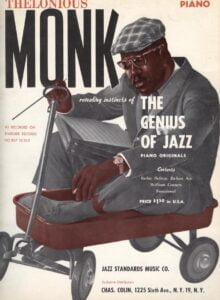 |
Thelonious Monk The Genius Of Jazz |
| Thelonious Monk Round Midnight Jazz Standard arr. Carsten Gerlitz |
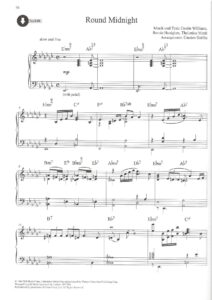 |
|
| Thelonious Monk Solo Transcriptions |
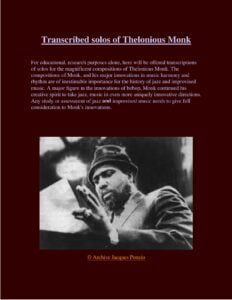 |
Thelonious Monk Solo Transcriptions |
| Thelonious Monk Tea For Two (piano solo transcription sheet music, partition) | Thelonious Monk Tea For Two (piano solo transcription sheet music, partition) | |
| Thelonius Monk – Monk’s Music and Jazz History in the making (Book) |
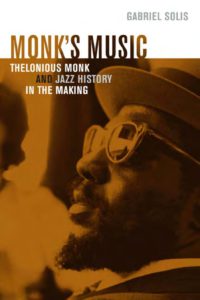 |
|
| Thelonius Monk – Thelonious transcription | Thelonius Monk – Thelonious transcription | |
| Theme de Charles (Un homme et son chien OST) Philippe Rombi | ||
| Thème de Jeanne – Le Diable par la Queue OST (Georges Delerue) | ||
| Thème de Jeanne – Le Diable par la Queue OST (Georges Delerue) trio version | ||
| Theme de Suzanne – Potiche OST (Philippe Rombi) | ||
| Theme from the Mermaid Chair (Secret Garden) | ||
| Theme From The Simpsons Jazz Play Along (Musescore File).mscz | ||
| Theodore Shapiro Diary Of A Wimpy Kid – Main Titles |
 |
|
| Theodore Shapiro Louder Than Thunder The Devil Wears Prada Theme Piano Solo Arr. |
 |
|
| Theodore Shapiro Severance Main Theme |
 |
|
| Theodore Shapiro Suite from The Devil Wears Prada Theme Piano Solo |
 |
|
| Theory Essentials An Integrated Approach To Harmony, Ear Training, And Keyboard Skills (Connie E. Mayfield) Book |
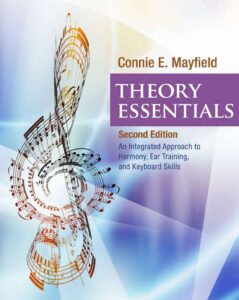 |
|
| Theory of Harmony – Arnold Schoenberg | Book Theory | |
| These Foolish Things Sheet Music Ella Fitzgerald |
 |
|
| Thinking In Jazz The Infinite Art of Improvisation Berliner, Paul (Book) 1994 |
 |
|
| This Is Halloween Easy Piano |
 |
|
| This Is Us Songbook Selections From The Television Series Soundtrack |
 |
|
| This Land Is Your Land (Guitar Chords) (Musescore File).mscz | ||
| This Land Is Your Land (Musescore File).mscz | ||
| This Little Light of Mine (African-American Spiritual) from The Best Children’s Songs Ever (Easy Piano) | This Little Light of Mine (African-American Spiritual) from The Best Children’s Songs Ever (Easy Piano) | |
| This Little Light of Mine (African-American Spiritual) from The Best Children’s Songs Ever (Easy Piano) Musescore file.mscz | ||
| Thomas Attwood Allegro First Movement From Sonatina No. 1 In G (Trinity Grade 2 Piano) |
 |
|
| Thomas Attwood – Allegro – First Movement from Sonatina No. 1 in G (Trinity Grade 2 Piano).mscz | ||
| Thomas Johnson READ AND PLAY New Series Grades II, III and IV Piano |
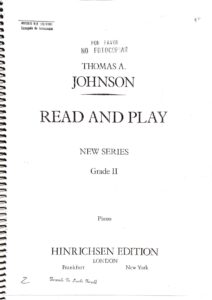 |
|
| Thomas Newman – Any Other Name (American Beauty Theme) | Thomas-Newman-Any-Other-Name-American-Beauty 1st page | |
| Thomas Newman – Road To Perdition – Road To Chicago |
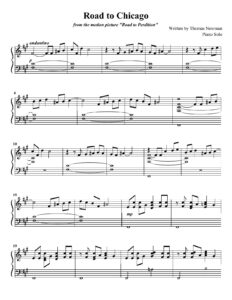 |
|
| Thomas Newman – Road To Perdition (Piano Solo) |
 |
|
| Thomas Newman – Road To Perdition Theme – Guitar Tabs |
 |
|
| Thomas Newman – The Horse Whisperer – Montana | Thomas Newman – The Horse Whisperer – Montana | |
| Thomas Newman – The Horsewisperer – The Vast Continent |
 |
|
| Thomas Newman – The Horsewisperer – Voice Of God | Thomas Newman – The Horsewisperer – Voice Of God | |
| Thomas Newman – The Shawshank Redemption – Stoic Theme |
 |
|
| Thomas Newman Forbidden Love (Meet Joe Black) | ||
| Those Were The Days (Musescore File).mscz | ||
| Those Were The Days Russian Traditional Jazzy Version | Those Were The Days Russian Traditional Jazzy Version | |
| Three Coins In The Fountain 1954 by Jule Styne and Sammy Cahn |
 |
|
| Three Days Grace – Never Too Late | ||
| Tidus And Yuna’s Theme (Musescore File).mscz | ||
| Tifa’s Theme (Final Fantasy VII Piano Collections) |
 |
|
| Tifa’s Theme Final Fantasy Vii Piano Collections (Musescore File).mscz | ||
| Tim Minchin – Miracle (Matilda the Musical) | Tim Minchin – Miracle (Matilda the Musical) | |
| Tim Minchin – Prejudice (Musical Comedy) Piano Sheet Music | Tim Minchin – Prejudice (Musical Comedy) Piano Sheet Music | |
| Tim Richards Improvising blues piano (PDF + MP3 audio tracks) |
 |
Improvising Blues Piano (with audio Mp3) |
| Tim Richards – Exploring Jazz Piano Vol. 1 (with MP3 audio tracks) |
 |
Tim Richards Exploring Jazz Piano 1 |
| Tim Richards – Exploring Jazz Piano Vol. 2 (with MP3 audio tracks) |
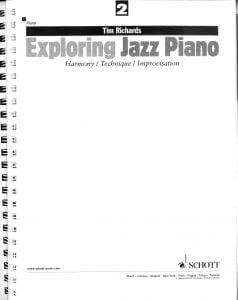 |
Exploring jazz piano 2 |
| Tim Richards – Exploring Latin Piano (with audio MP3) |
 |
Tim Richards – Exploring Latin Piano |
| Tim Smith Cardiacs All Spectacular Piano Solo |
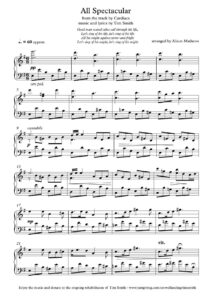 |
|
| Tim Smith Cardiacs Savour Piano Solo |
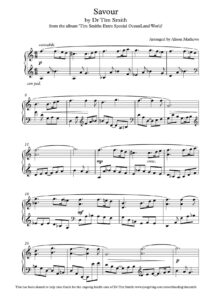 |
Creation and development

Final Fantasy VII was scored by the series’ main composer Nobuo Uematsu
Nobuo Uematsu composed the music of Final Fantasy VII in less than one year, matching the game’s development time, although he had taken two years to create the soundtrack for the previous title, Final Fantasy VI. Final Fantasy VII was the first game in the series to be developed for the PlayStation, and while the media capabilities of the console allowed for pre-recorded Linear PCM (often as Red Book audio tracks on the CD), it was decided to generate the music in real time on the console instead, using samples and note data. This decision has been credited as giving the soundtrack “a very distinctive mood and feel”, forming a strong association for listeners between the game and its soundtrack.
Uematsu had initially planned to use vocal performances for the game to take advantage of the console’s capabilities, but found that the advanced audio quality required in turn made the game have much longer loading times in each area. Uematsu decided that the quality was not worth the effects on gameplay, though after the release and seeing Suikoden II (1998, PlayStation), which had used higher-quality music instead, he reversed his stance for Final Fantasy VIII. There was a plan to use a “famous vocalist” for the ending theme to the game as a “theme song” for the game, but time constraints and thematic concerns, caused the idea to be dropped. Uematsu has stated, however, that the move into the “PlayStation era”, which allowed video game composers to use sounds recorded in the studio rather than from synthesizers, had “definitely been the biggest change” to video game music.
Uematsu’s approach to composing the game’s music was to treat it like a film soundtrack and compose songs that reflected the mood of the scenes rather than trying to make strong melodies to “define the game”, as he felt that approach would come across too strong when placed alongside the game’s new 3D visuals. As an example, he composed the track intended for the scene in the game where Aerith Gainsborough is killed to be “sad but beautiful”, rather than more overtly emotional, creating what he feels is a more understated feeling. Uematsu has additionally said that the soundtrack has a feel of “realism”, which also prevented him from using “exorbitant, crazy music”.
The first piece that Uematsu composed for the game was the opening theme; game director Yoshinori Kitase showed him the opening cinematic to the game and asked him to begin the project there. The track was well received in the company, which gave Uematsu “a sense that it was going to be a really good project”. He later stated in the liner notes for the soundtrack album that the music for Final Fantasy VII was his “greatest harvest” to date.
Final Fantasy VII was the first game in the series to include a track with digitized vocals, “One-Winged Angel”. The track has been called Uematsu’s “most recognizable contribution” to the music of the Final Fantasy series, though the composer did not expect it to gain such popularity. The piece, described as “a fanfare to impending doom”, is said to not “follow any normal genre rules” and has been termed “possibly the most innovative idea in the series’ musical history”.
Uematsu approached the piece, which accompanies the final battle of the game, in a different manner than previous “boss tracks”: as he felt that using his normal approach would cause unfavorable comparisons to his well-received Final Fantasy VI boss tracks, he instead tried to take a different approach. Inspired by The Rite of Spring by Igor Stravinsky to make a more “classical” track, and by rock and roll music from the late 1960s and early 1970s to make an orchestral track with a “destructive impact”, he spent two weeks composing short unconnected musical phrases, and then arranged them together into a song, an approach he has never used before or since.
The lyrics of “One-Winged Angel”, a Latin choral track that plays at the climax of the game, were taken from the medieval poetry that forms the basis of Carl Orff‘s Carmina Burana, specifically “Estuans Interius”, “O Fortuna“, “Veni, Veni, Venias” and “Ave Formosissima”. Uematsu has stated that the intro of “One-Winged Angel” is based on Jimi Hendrix‘s “Purple Haze“, that the piece revolves around the image of Sephiroth, and that despite the chorus and orchestra, he still thinks of it as a “rock piece”. He said in a 2005 interview that “One-Winged Angel” is his favorite tune from the soundtrack, and in 2004 that it was his favorite battle theme from any Final Fantasy game.
Final Fantasy VII Albums
Original Soundtrack
Final Fantasy VII Original Soundtrack is a soundtrack album containing musical tracks from the game, composed by Nobuo Uematsu and produced by Uematsu and Minoru Akao. It was originally released on February 10, 1997 through DigiCube and later reissued directly by Square Enix on May 10, 2004. The soundtrack spans 85 tracks over four discs and has a combined duration of 4:39:53. A limited edition was produced along with the original album, containing illustrated liner notes with several pictures of Uematsu’s workspace and personal effects, various cutscenes and in-game screenshots from the game, and a discography.
The soundtrack covers a wide variety of musical genres, including rock, techno, orchestral, and choral, although the soundtrack as a whole is primarily orchestral. While many of the tracks were intended as background music, reviewers noted the emotional intensity of several tracks, especially “Aerith’s Theme”, which plays during a moment described as “the most shocking moment in video games,” and has been described as the most memorable track from the album. The theme has become popular among fans, and has inspired various arrangements. Other notable tracks include “Main Theme of Final Fantasy VII”. Themes from this track play during several other tunes from the soundtrack, such as “Words Drowned by Fireworks”, to tie the soundtrack together.
The regular edition of the album reached No. 3 on the Japan Oricon charts, while the limited edition reached No. 19. Overall, the album sold 148,000 copies as of January 2010, with the limited edition selling a further 21,000. The album was well received by critics. Allmusic awarded Uematsu’s original soundtrack a five-star rating.
Ben Schweitzer of RPGFan claimed that “for the most part, it’s a diamond”, with his primary complaint being the quality of the MIDI sound. He found the tracks to be “beautiful” and said that “One-Winged Angel” was “possibly the most innovative idea in the series’ musical history”.
Patrick Gann of RPGFan concurred and found all of the soundtrack’s tunes to be “memorable” and the Original Soundtrack to be “very worth the purchase”. Philip of Square Enix Music Online, however, disliked the sound quality of the soundtrack and saw several tracks as “trivial”, though he did note that Uematsu “has a flair for strong, memorable” pieces. In 2006, IGN ranked the album as the best Final Fantasy soundtrack to date and cited the “gripping” character themes and “One-Winged Angel” in particular as contributing factors. They also named “One-Winged Angel” as the best piece of music from the entire Final Fantasy series.
The original CDs for both releases were only published in Japan and include only Japanese track names. The official English track names were later added to digital releases of the soundtrack.
